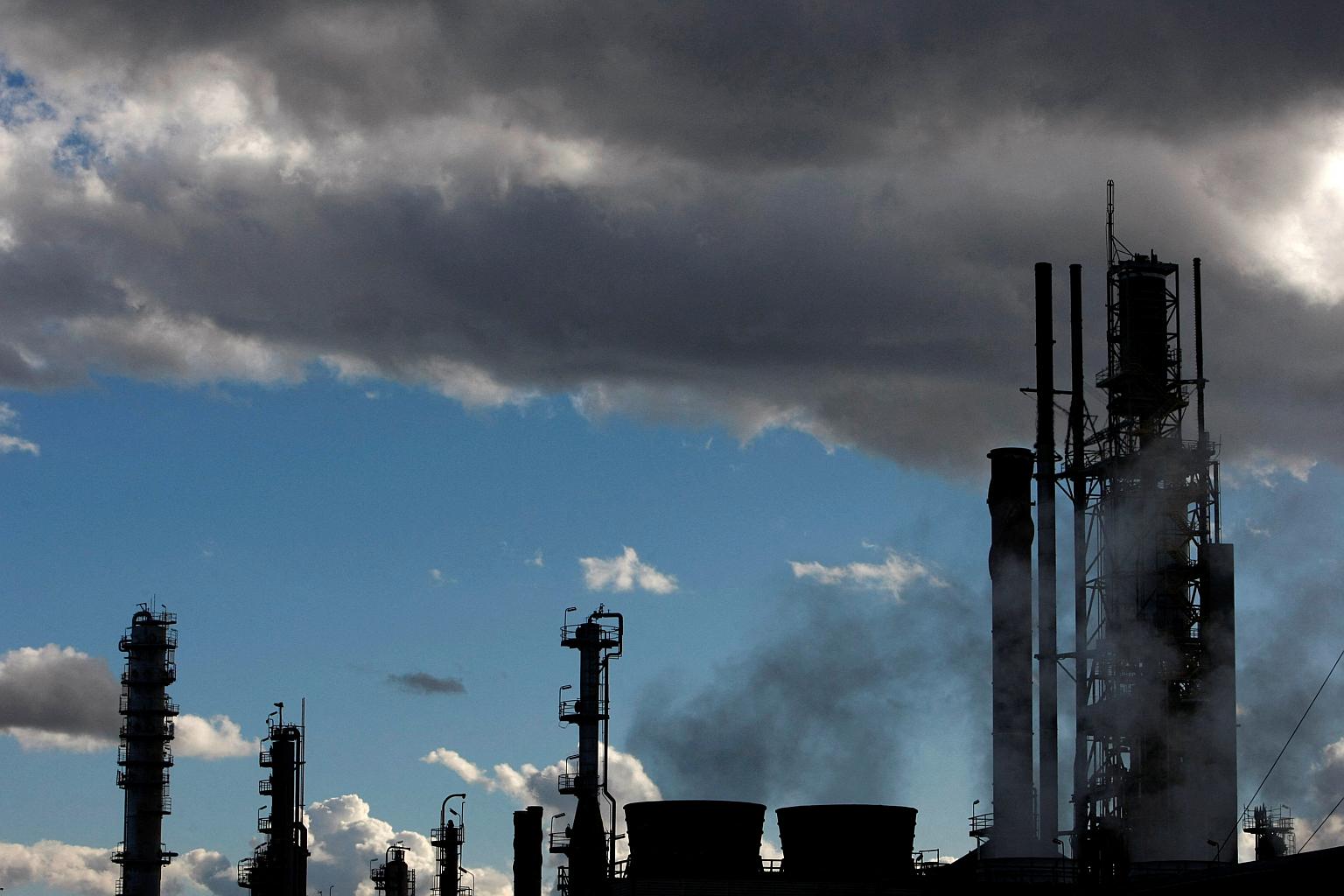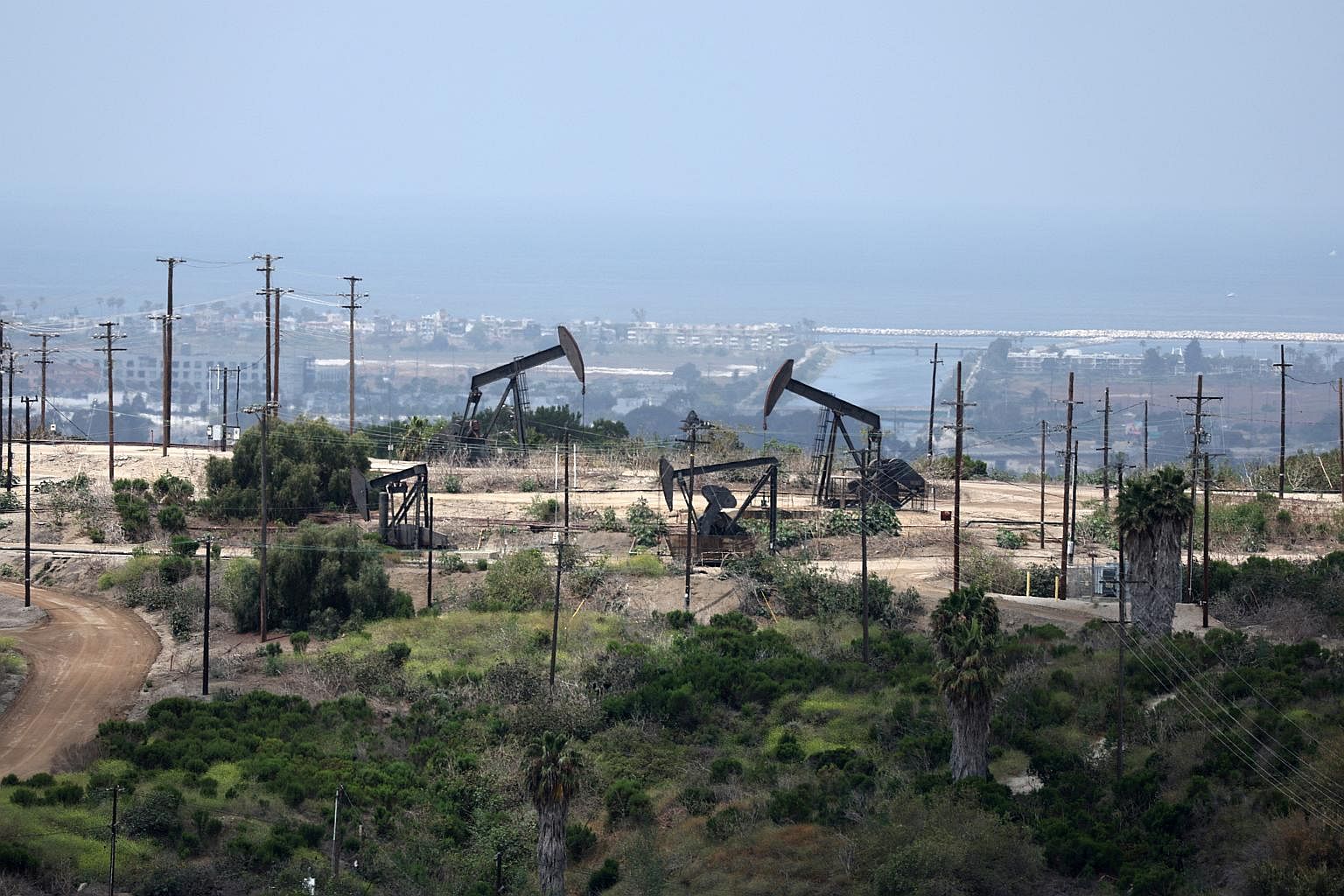New study questions carbon capture projects' ability to cut global CO2 emissions
Sign up now: Get ST's newsletters delivered to your inbox

A report found that many carbon capture projects either underperformed or failed.
PHOTO: REUTERS
SINGAPORE - A new study calls into question the ability of carbon capture projects to cut global carbon dioxide (CO2) emissions, and puts forth recommendations for upcoming projects if no alternative solutions to emission reduction can be found.
The report by the Institute for Energy Economics and Financial Analysis released last Thursday found that many carbon capture projects either underperformed or failed, and questioned whether the world could rely on such technology to meet its target of net-zero emissions.
The problem is that much of the CO2 captured is being used to extract more oil from oil fields, which contributes to more CO2 emissions, said the study.
It also found that CO2 that has been captured and stored may leak into the atmosphere. This means such storage facilities would require monitoring for centuries to ensure that trapped CO2 does not return to the atmosphere, said the study's author, Mr Bruce Robertson.
Hence, the report called on developers to take responsibility for the leakage of CO2 from their projects, and stressed that CO2 captured should not be used in oil extraction.
Carbon capture projects must also not be used by governments as a climate solution to justify the use of any type of fossil fuel, said the report.
Carbon capture and storage technology entails the capturing of CO2 and storing it underground. This prevents CO2 from accumulating in the atmosphere, where it traps heat and causes global warming.
The International Energy Agency said that annual carbon capture capacity needs to increase to 1.6 billion tonnes of CO2 by 2030 to meet the global target of net-zero emissions by 2050. This would help avert the catastrophic impact of climate change on countries and economies.
However, the new report said carbon capture projects in the natural gas, industrial and power sectors were not effective in meeting the goal.
The study looked at 13 flagship carbon capture and storage projects in these sectors, which accounted for around 55 per cent of the total current operational capacity worldwide.
Mr Robertson, an energy finance analyst at the Institute for Energy Economics and Financial Analysis, said that seven of the 13 projects underperformed, two failed, and one was mothballed.
"Carbon capture and storage technology has been going for 50 years and many projects have failed and continued to fail, with only a handful working," he added.
The reasons for underperformance are diverse, ranging from economic to engineering problems, said Mr Robertson.
For example, the ExxonMobil Shute Creek carbon capture plant in the United States - the world's biggest and longest-running carbon capture project - failed to reach its carbon capture capacity after operating for 35 years.
Only half the targeted CO2 was captured, while the remaining was released back into the atmosphere.
The facility commenced operations before climate change was a widespread public concern. Its principal purpose was to sell captured CO2 for oil recovery, where CO2 is pumped into dwindling oil fields to extract more oil.
Some three-quarters of the CO2 captured annually by multibillion-dollar facilities globally - around 28 million tonnes out of 39 million tonnes - is reinjected into oil fields to push more oil out of the ground, Mr Robertson noted.
Asked if the newer carbon capture projects would likely be plagued by the same issues faced by the older ones, he said that the technology has not fundamentally changed and success rates continue to be mixed.
He cited the Gorgon carbon capture project in Australia as an example.

Owned by Chevron, Shell and ExxonMobil, he noted that some of the best carbon capture and storage engineers in the world had worked on the project, and yet they could not get the facility to function properly.
Finding suitable CO2 storage sites and preventing CO2 from leaking back into the atmosphere are major challenges, the study said.
Mr Robertson gave the example of the In Salah carbon capture project in Algeria, which was suspended in 2011 after seven years of operations as there were concerns about the trapped CO2 escaping.
"Many international bodies and national governments are relying on carbon capture in the fossil fuel sector to get to net zero, and it simply won't work.
"Overall results show that these projects continue to overstate and underperform," said Mr Robertson.
Storegga is the lead developer of Britain's Acorn programme, which has a portfolio of projects including the capture and storage of CO2 in depleted oil and gas fields under the Central North Sea.
Its spokesman said that the CO2 stored some 2km below the seabed is not used for other commercial purposes.
"Enhanced oil recovery using CO2 is not a climate protection methodology," he said, adding that the Acorn CO2 storage licence precludes the use of CO2 for extracting oil.


